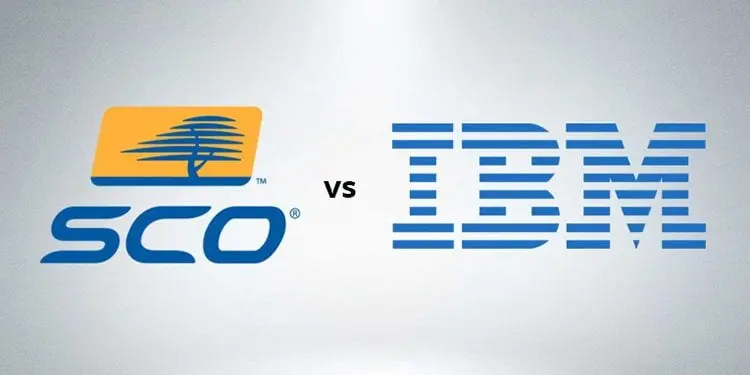A lawsuit that has been going on for nearly 20 years and was thought to threaten the very existence of Linux has finally come to an end.
The lawsuit began in 2003, but the events behind it date back to 1998. At the time, IBM and Santa Cruz Operation (SCO - the vendor of UNIX for x86 CPU devices) joined forces with other companies to create the “Monterey” project to create a version of UNIX that would run on multiple hardware platforms - this was what the Linux community was doing at the time. - This is what the Linux community was doing at the time.
By 2001, IBM decided that Linux was the future and withdrew from the ‘Monterey’ project and bought out some of the companies involved. By this time, IBM had created its own experimental UNIX-like operating system, AIX, which used some of SCO’s code. When the “Monterey” project was abandoned, IBM contributed some of the project’s intellectual property to Linux.
SCO objected to IBM’s contribution because SCO felt that IBM was giving its assets to the open source Linux code base. Since then, a long and shocking lawsuit has been underway.
In 2003, SCO filed a series of lawsuits against Linux vendors such as IBM, alleging that the source code contributed to the Linux kernel by IBM and others used its System V source code, in violation of copyright. However, SCO refused to identify specific pieces of code, claiming that this was a secret they would only reveal to the court, stating that the “stolen” code could be found in the SMP, RCU and Linux kernels.
On 6 March 2003, SCO announced that it was suing IBM for $1 billion, claiming that IBM had transferred SCO’s trade secrets to Linux, an amount that later rose to $3 billion and then to $5 billion.

SCO has since filed lawsuits and claimed substantial monetary damages against companies such as Hewlett-Packard, Microsoft, Novell, Silicon Graphics, Sun Microsystems and Red Hat. Five of the better known lawsuits include.
- SCO v. IBM
- Red Hat v. SCO
- SCO v. Novell (not directly related to Linux, this lawsuit has more to do with UNIX copyrights)
- SCO v. DaimlerChrysler
- SCO v. AutoZone
In these cases, SCO openly implied that others were also infringing copyright, including not only Linux developers but also Linux users.
The reason the cases have gone on for so long is that the rewards of winning the case are very lucrative - an eventual victory for SCO would mean the opportunity to gain partial ownership of Linux. Given that Linux is used by billions of smartphones every year and is at the heart of countless other devices, the resulting royalties could be huge. And if SCO were to win, not only would IBM have to pay $5 billion, but all companies would be stuck with a huge payout for using Linux.
But this “dream” of SCO seems to have been dashed. After 18 years, the lawsuit is finally coming to an end. Documents filed with the Delaware Bankruptcy Court last week show that IBM will only have to pay a settlement of $14.25 million to end the matter.
The trustee of SCO, which filed for bankruptcy earlier, and IBM filed a settlement agreement with the Delaware Bankruptcy Court on 26 August. The settlement agreement was the result of arm’s length negotiations between the trustee and IBM.
Under the settlement agreement, the Trustee and IBM agreed to resolve all disputes between them and the parties reached a settlement to resolve all remaining claims in their Utah lawsuit, with IBM paying the Trustee $14.25 million. The Trustee believes that the settlement is in the best interests of the bankrupt parties and creditors, and it believes that even if it wins the case to confirm the harm caused to SCO over a decade ago, the damages may not be greater than the settlement amount.
While the SCO Trustee believes that they will ultimately prevail in their claim against IBM, there is also the possibility that IBM will be successful in its defence or counterclaim, so settlement is the option that maximises the benefits.